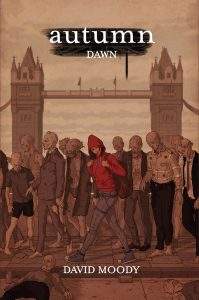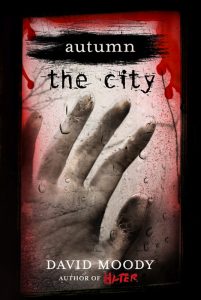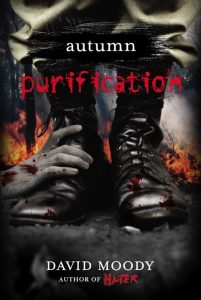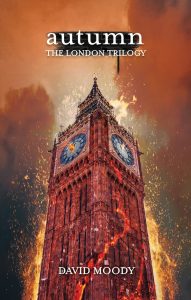Barely a Sound (part i)
AUTUMN
Over the centuries, cities like Birmingham grew organically. From the seeds of the first small settlements, they blossomed and bloomed, typically without an overall plan, feeling their way along. Tendril-like pathways explored the world like roots through soil, prodding and probing through the darkness. Trodden pathways became roads as shoots became trunks. Populations of hundreds of people became thousands, hundreds of thousands or, as was the case here, more than a million. Communities sprang up on the outskirts, only to be swallowed up over time as boundaries shifted and expanded. With the passage of time, like every other city, Birmingham became a vast, sprawling, interconnected machine for people to live and work in, unrecognisable from its humble beginnings. It was the culmination of an incalculable number of years of effort, from a vast number of people, generation after generation. Extraordinary levels of innovation and communication, honed over centuries, sustained a complex and resilient network of families, friends, organisations, and businesses.
And yet it was all brought to a crushing halt in minutes without any human intervention whatsoever.
On the morning it happened, life in this part of the city was the same as any other Tuesday morning. There was an average number of vehicles on the roads, and an average number of people on the streets. The temperature was about right for early September, a little warmer, if anything. The sky was clear, the air crisp and dry.
Because of their haphazard development over generations, you can find an abundance of abnormalities in a place like Birmingham. Needless Alley was a prime example. It was a narrow and largely straight, block-paved walkway of about one hundred and fifty metres in length. It sloped gently downwards from Temple Row and the green space around the city’s cathedral, and connected with New Street, the main shopping throughway that had been pedestrianised decades ago. There were various explanations as to how Needless Alley had come to be named. Some claimed it was where ladies of ill-repute used to loiter for business (the so-called “needless people”), whilst others pointed to the proliferation of needle-makers that plied their trade along the alley up until as recently as the 1970s. Locals joked that the place got its name because it was pointless. Nobody needed it. With busy connecting streets running parallel on either side, Temple Street on one side and Corporation Street on the other, the thin strip of space was often overlooked.
Needless Alley tended to be used in fits and bursts. At the beginning and end of the working day, workers would use it as a cut-through to shave a couple of minutes off their walk to or from the station or office. Others used it to avoid the swollen crowds on New Street. It was just about wide enough for vehicles to pass along, but the council installed bollards two-thirds of the way down from the cathedral to make it safer for pedestrians, and it was only ever the occasional delivery truck or service vehicle that needed access. At the New Street end of the alley there was a glass and chrome fronted metro supermarket on one side, a clothes store on the other. At the cathedral end, it was all offices, coffee shops, and fancy eateries.
Another reason Needless Alley was typically quiet was because people did their best to actively avoid it. Built up on either side, with enough of a slight angle so that you couldn’t see all the way along its length from any single point, during the hours of darkness it was a definite no-go area.
When the event occurred, there were only two people walking along the alley. They died within a couple of metres of each other but out of reach and unaware of each other’s presence. Their choked screams were drowned out by the noise of a garbage truck that had just been reversed up to the barriers for a collection. For several hours after the world had died, the idling engine of the truck was just about the only noise that disturbed the unnatural silence of everything else.
In an impossibly short period of time – less than a quarter of an hour – everything had changed. Only a handful of the local population had survived, and in those first nightmare hours, those who had somehow been spared asphyxiation were too afraid to move, convinced their reprieve from whatever had killed everyone else was only temporary.
Over the course of the following couple of days, other than the light levels and the temperature, little changed. An inquisitive rat sniffed at one of the Needless Alley corpses, and even gnawed on the end of one of the dead man’s fingers, but there were better pickings to be had elsewhere. The goods spoiling on the supermarket shelves had a far sweeter scent.
When the dead began to rise, one of the two bodies in Needless Alley got up and staggered away. The other remained where it had fallen; facedown and leaking into the block-paving, dribbling away into the gutter. Had any survivors been there to watch, they might even have found the sight of the mobile corpse comical. Dragged down towards New Street by the natural slope of the passageway, the dumb creature bounced off the walls like a ball in a pinball machine, before becoming stuck between the security bollard and the back of the rubbish truck. The size of the truck was such that it blocked almost the entire width of the alley, and whilst a person might, in normal times, have been able to turn side-on and slip through the gap, these were far from normal times and the dead possessed no such self-control.
The slope exacerbated the problem.
At the cathedral end of Needless Alley, the shape of the surrounding buildings combined with the topography of the area to create a natural funnel that, over time, caused a group to form at the junction with Temple Row and then trip unsteadily downwards towards New Street. A glut of bodies soon built up at the back of the garbage truck, going nowhere.
The living dead apart, other factors began to affect conditions in and around the centre of the city.
In the supermarket at the junction of New Street and Needless Alley, a fire broke out. How it began wasn’t important – it could have been caused by any of a thousand things – it was the response that mattered. Rather, the lack of response. No one tried to douse the flames. No one did anything.
It could have been much, much worse.
All around the world, thousands of planes had fallen out of the skies, their dead pilots no longer in control. Elsewhere, machinery that had been started up was never stopped, left running until it burnt out. Power stations went into meltdown, alarms screaming on control panels left unanswered. Ships rammed into their ports, others veered wildly off-course. Trains ploughed through stations. Millions of cars crashed. An incredible number of meals that were in the process of being cooked were left to burn. Millions of ovens left alight, millions of taps left running. In operating theatres, surgeons and support staff died alongside their patients left on tables, never to regain consciousness, never to be sewn up. Right around the planet, in every town, city, and village, an almost inconceivable number of things that had been started would never be finished. All of these processes would end in one way or another, that much was certain, but not in the way that had been planned.
And there was no one left to do anything about it.
Disasters that could previously have averted by something as simple as a flick of a switch or a change of direction, now were not.
It was the same in the supermarket on New Street.
The small fire in one corner of the store began to grow.
And grow.
And grow.
Within an hour, almost the entire interior of the store was fully ablaze.
Pure chance prevented the flames from spreading further. The supermarket’s modern frontage had been erected on the front of an old building that had been refitted, and the stubborn concrete walls provided defence from the heat. Whilst the outer shell remained largely intact, the first floor collapsed during the night, and the roof caved in several hours later. A heavy downpour just before dawn dulled the embers sufficiently, stopping the fire from spreading further.
In the morning, as more of the mindless undead dragged themselves along the streets of Birmingham without purpose, the burnt-out store became a focal point. There were new smells here, different sensations and sounds. Over time the dead became gradually more aware and were drawn to this place, as were hordes of other creatures. Stray dogs mooched around, their dead owners having long since let them go mid-walk. Cats, too, crept closer, more cautious but equally hungry, having to fend for themselves for the first time. The lives of untold millions of pets had been affected by the annihilation of the human population. Previously domesticated animals were having to rediscover primal instincts and urges that selective breeding and years of pampering and grooming had erased. Never again would any of them enjoy the luxury of having food prepared for them in the warm kitchens and hallways of the places where they used to live. Their homes were the streets now.
The lucky ones, anyway.
Many pets had been left to die, trapped in the sheds, cages, tanks, and hutches where they’d previously been looked after. In time, fish tanks would dry up or become overgrown with algae. Vivariums and terrariums would go unattended. Warm blooded animals would be left to freeze, while cold blooded creatures overheated.
The wind blew rubbish along the streets, accumulating day by day in doorways and under ledges. Windows soon became obscured with dust, dirt, and mould. Weeds sprung up in the gaps between paving slabs and kerbstones. Unattended, these small changes collectively had a disproportionately damaging impact.
The wind whipped down Needless Alley, carrying uncollected leaves from the grassy area around the cathedral. Unlike previous autumns, this year the dead leaves were left to collect in gutters and block drains, preventing rainwater from clearing, causing lakes to form in the streets. At times the water ran down the alley like a river, coursing between the feet of the fifty-or-so corpses that were now trapped behind the garbage truck, blocking the alleyway.
Despite the tumultuous events that had taken place across its entire surface, the planet continued its journey through space uninterrupted: its orbit unchanged, seasonal variations unaltered. September and October were bright, sunny months, but November brought with it a noticeable change. Here in the United Kingdom, the daylight hours began to shorten. The temperature dropped steadily as autumn ended and gave way to winter.










